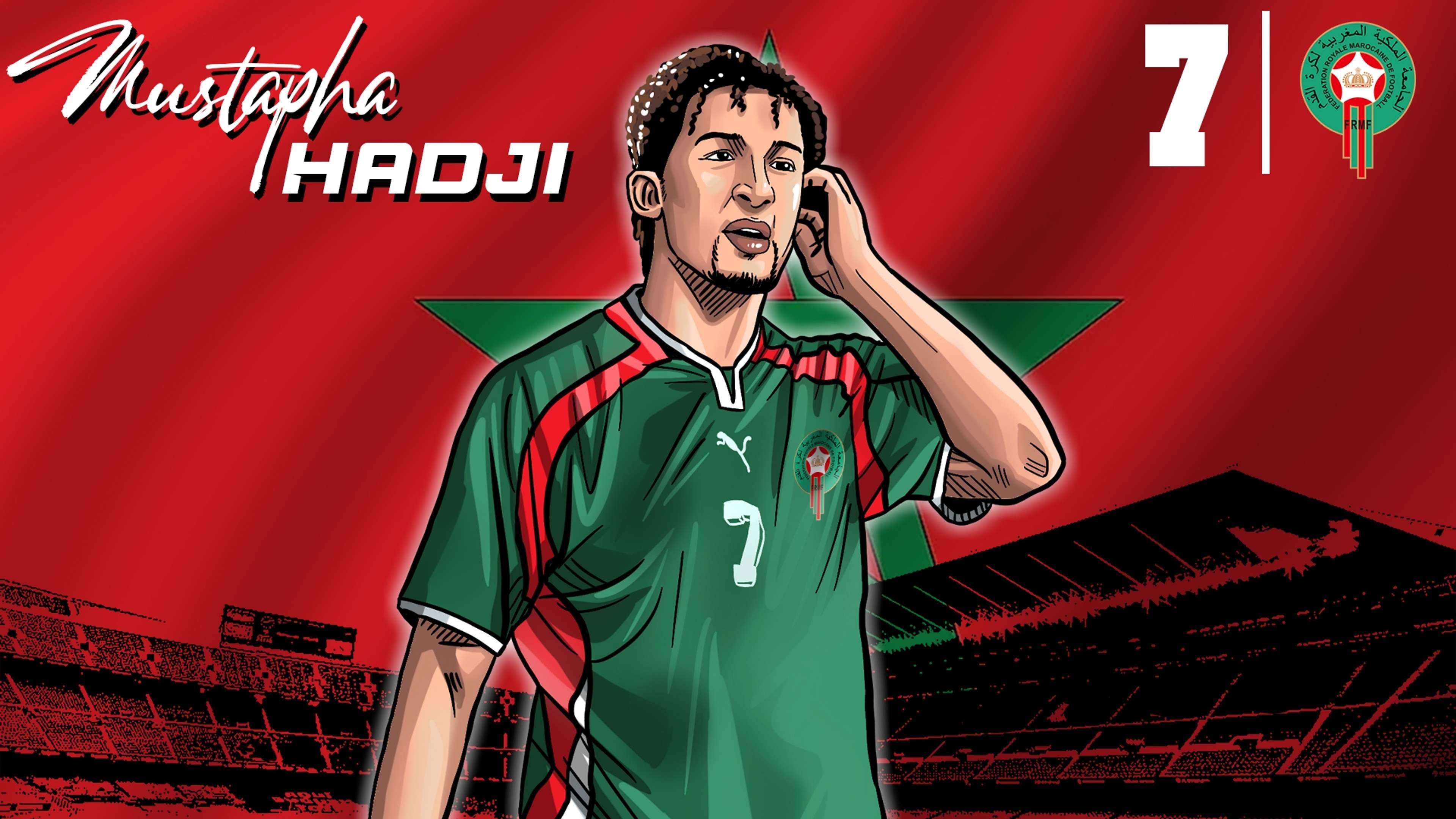Different regions in Africa pride themselves on developing a certain type of player.
Cameroonians will tell you that they develop the continent's best goalkeepers, for example, while Ghanaians believe they’re unparalleled when it comes to churning out muscular but technical box-to-box midfielders.
The North African Maghreb, meanwhile, prides itself on producing majestically creative and offensively insouciant playmakers.
And with good reason.
Riyad Mahrez was only the most recent dazzling talent to emerge from a region that can point to the likes of Lakhdar Belloumi, Tarak Dhaib, Sofiane Boufal, Yacine Brahimi, Mohamed Timoumi and Ali Bencheikh as players who personified the traditional values and attributes of North African football.
However, although all of those players are revered for their dribbling ability, innovation, and ability to change a contest in the blink of an eye, not one ever truly excelled at the World Cup.
This is where Mustapha Hadji stands alone among Maghrebin maestros.
The Moroccan was unquestionably one of the breakout stars of France 98.
 Getty/GOAL
Getty/GOALHadji only scored once at the tournament but his delightful goal against Norway in the group stage brought together all of his rare qualities.
He raced onto a long ball by Tahar El Khalej and sized up his options before bringing the ball under control with his left foot, and then stepping over with his right, mesmerising poor Dan Eggen.
With a wonderful feint, Hadji then dragged the ball across his body, sending the Norwegian defender the wrong way, before firing home with his right foot.
In that one goal, we saw all of the improvisation, balance, agility, turn of pace and instinctive finishing for which North Africa's finest forwards are renowned.
Morocco may have fallen at the first hurdle at the tournament, despite a scintillating 3-0 demolition of Scotland, but Hadji was still honoured as CAF's African Footballer of the Year in 1998 – and he remains the only Moroccan to win that particular prize.
Superstardom beckoned and perhaps he would have burned a little brighter had he not opted for a move to unfashionable Coventry City in the Premier League a year after his exploits in France. After all, at the time, AC Milan were reportedly interested in his services.
However, after falling out with then-Deportivo La Coruna coach Javier Irureta, he made a £4 million ($5m) move to Highfield Road, arriving in the West Midlands alongside compatriot Youssef Chippo.
The late-90s saw many of the game's most exciting talents join some of English football's lesser lights, given the money on offer in a Premier League that was exploding in popularity.
The result was the ludicrously talented Juninho turning out for Middlesbrough, Paulo Wanchope leading the line for Derby County, and Benito Carbone starring for Sheffield Wednesday.
It was a joyous time, and Hadji’s arrival at Coventry prompted optimism that the Sky Blues could truly establish themselves as a top-flight club, rather than constantly flirting with relegation.
There was something fresh and vibrant about Hadji, whose casual but daring playing style was perfectly complemented by his loose ponytail and baggy light blue Coventry kit.
He certainly left the fans with some fantastic memories, not least the half-volley against Watford and a sensational effort against Arsenal on Boxing Day.
Hadji also produced some thrilling interplay with Chippo, which led to a memorable thunderous effort in a 6-1 rout of Leeds United in September 1999, and also saw traditional Moroccan fezzes become a regular sight at Highfield Road.
Then there was the first-half brace at Aston Villa, when captaining Coventry, that momentarily looked like it might save the club from the drop in 2001.
Hadji was obviously too good to play in the second tier and he moved to Aston Villa, winning the Intertoto Cup under John Gregory.
However, the later arrival of David O’Leary and a change of style at Villa Park meant the end of Hadji's adventure in England.
Injuries had long been an issue for him – he was reportedly once so desperate to play for Coventry that he strapped raw steak to a bruised foot – and he struggled during the twilight of his career to regularly summon up the skills that had mesmerised defenders at France 98, failing to really shine in subsequent spells in Spain, Germany, Luxembourg and the United Arab Emirates.
Such is his love of the game, though, that he continued playing until he was 40. And it came as no surprise to see him move into coaching after his eventual retirement in 2010.
Indeed, he’ll be back at the World Cup again this year, as his nation's assistant coach, and Hadji will be hoping that Morocco’s current stars can perform with the same level of panache and flamboyance that the ultimate Maghrebin maestro displayed at France 98.


